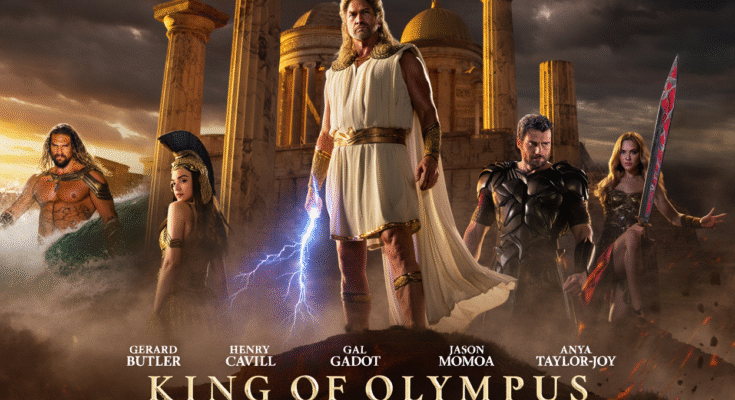King of Olympus – A Mythic Epic of Gods, Power, and Destiny
King of Olympus is a sweeping fantasy adventure that reimagines the legendary tales of Greek mythology with modern cinematic grandeur. Anchored by timeless themes of power, betrayal, and sacrifice, the film portrays the rise of Zeus, the god who would come to rule Mount Olympus and establish the pantheon of deities revered across the ancient world. Combining breathtaking visuals, epic battles, and emotional storytelling, King of Olympus explores the struggles of gods who, though immortal, are deeply flawed and profoundly human in their desires.
The narrative begins in the chaos of the Titanomachy, the legendary war between the younger Olympian gods and their predecessors, the Titans. Zeus, born of Cronus and Rhea, emerges as a central figure in this cosmic struggle. With his siblings Poseidon, Hades, Hera, Demeter, and Hestia, Zeus fights to overthrow their tyrannical father, Cronus, whose hunger for power drives him to devour his own children. The film’s opening act paints a vivid portrait of rebellion, as Zeus frees his imprisoned siblings and rallies them against the seemingly invincible Titans.
What follows is an exploration of Zeus’s transformation from warrior to ruler. His thunderbolt, forged in the depths of Tartarus, becomes not only a weapon of war but also a symbol of divine authority. Yet King of Olympus does not present Zeus as a flawless figure. Instead, it delves into his ambition, pride, and complicated relationships—with his siblings, his allies, and his rivals. The tension between Zeus, Poseidon, and Hades over the division of the cosmos becomes a central conflict, highlighting themes of family rivalry and the fragile balance of power.
The film also explores Zeus’s role as a unifier. As the war ends and the Olympians ascend, Zeus must consolidate their rule, establishing laws that govern both gods and mortals. His marriage to Hera is depicted as both a political alliance and a personal struggle, as her jealousy and his infidelities foreshadow future discord. Meanwhile, the creation of Mount Olympus as a seat of power represents not only a physical triumph but also a fragile dream of order in a world still teeming with chaos.
Visually, King of Olympus delivers grandeur on an epic scale. From the fiery prisons of the Titans to the storm-swept peaks of Olympus, the film’s landscapes capture both the beauty and terror of the mythological world. Massive battle sequences between gods and Titans are rendered with dazzling effects, showcasing creatures of colossal scale and powers beyond human comprehension. Yet the cinematography also focuses on intimate moments—conversations between siblings, tender scenes of love, and private doubts—that remind audiences of the humanity within these divine figures.

Thematically, King of Olympus grapples with the nature of leadership and the price of power. Zeus’s rise is marked by sacrifice and betrayal, forcing him to balance justice with ambition. The film questions whether absolute authority can ever be wielded without corruption, and whether even gods can escape the flaws of pride and desire.
King of Olympus is not just a retelling of mythology but a character-driven epic that breathes new life into stories that have endured for millennia. By blending thrilling spectacle with moral complexity, it offers a fresh perspective on Zeus’s journey from rebel warrior to the revered but controversial King of the Gods.


-1752128686-q80.webp)
